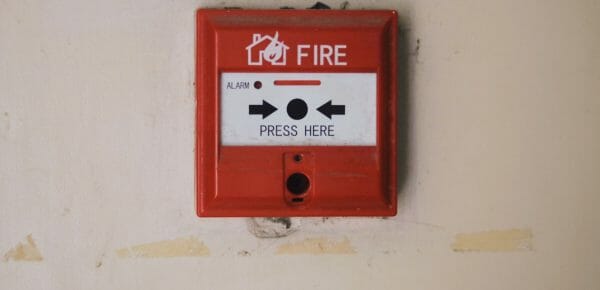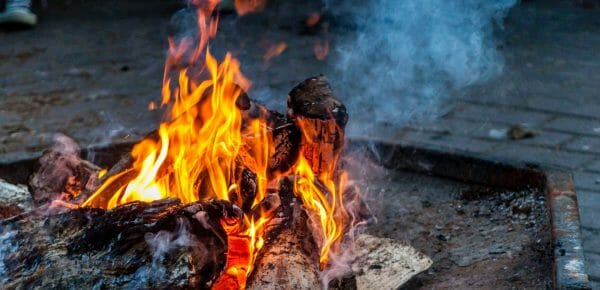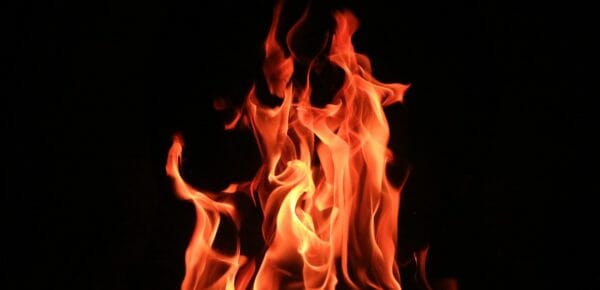Fire is an incredibly important part of our lives. We cook with it, power our vehicles with it, and relax beside its hypnotizing dance to soak up its warmth on chilly evenings.
With all the good things fire means to our lives, it’s still a very powerful and destructive force of nature. Wildfires burn millions of acres around the world annually, so prudent people who live in areas prone to fires have an emergency action plan in place.
Why is an emergency action plan important?
While learning and practicing the fire prevention measures that keep fires from starting, it’s important to remember that not all fires are started by humans, and even the best plans sometimes hit snags. By having an emergency action plan in place, you can stop fires from spreading and even save structures and lives in your community from the potentially devastating effects of an uncontrolled fire.
Prevention of grass fires
Grass fires can be particularly troublesome due to the relative ease by which they ignite, as well as their fast-spreading nature. While many wildfires are caused by lightning and power equipment damaged by storms, a great deal are caused by humans. These types of fires can and should be avoided. No one wants to watch fires burn across their community, so keep them at bay by brushing up on these grass fire prevention tips.
Dispose of cigarette butts properly
One of the most easily preventable causes of wildfires is improperly disposed cigarette butts. Many smokers are desensitized to the effects that this little piece of litter can cause, but it’s something to be mindful of. Disposing of your butts properly is an easy way to prevent roughly 800 wildfires per year.
Pay attention to the weather conditions
The US saw record drought conditions in 2021. Not only did the inclimate weather affect crops and lawns, but it created ideal conditions for fires to start and spread. It also reduced the amount of water available to fight them. When you do anything involving fire, it’s important to be mindful of your surroundings.
A windy day in drought conditions is an incredibly dangerous time for recreational fires and fireworks. Pay attention to any fire bans or dry fuel warnings in your area before burning.
Use fireworks and recreational fires safely
Fireworks cause tens of thousands of fires each year and send thousands to the hospital. It’s important to use caution if you choose to celebrate with fireworks. Always have water handy, and make sure the area is clear before setting off your fireworks. In extremely dry conditions, it may be best to forgo them entirely.
When burning a recreational fire, make sure to put some distance between the fire and surrounding foliage. Not only do fires occasionally reach higher than we anticipated, but burning oily, sappy woods like pine and cedar can cause embers to pop out of the pit and ignite dry brush or leaves nearby.
When you are finished with your fire or fireworks, make sure you douse them with water until they are cool to the touch. Keeping a bucket of water nearby helps in either case. You can use the bucket to drench the fire, and you can place spent fireworks in it to completely submerge them before placing them in the trash.
Keep vehicles off dry grasses
Summer is the season for picnics and off-road adventures, but be careful when you leave the roadways. The exhaust systems in vehicles can reach extremely high temperatures. We may not always remember that since we are generally inside the vehicle, protected from the heat by distance and heat shields. But, those temps are easily high enough to ignite the dry grasses that brush past your exhaust system on your drive through the prairie.
Operating a vehicle in a dry field of grass is typically something to be avoided, if possible. Off-road vehicles are equipped with a spark arrester, but many vehicles aren’t. If you must drive through the field, there are safety precautions you can follow to prevent grass fires. First, don’t park your vehicle in a grass field. If possible, find a clearing. Second, it’s always helpful to keep a shovel, fire extinguisher, and bucket for water in your vehicle as part of your emergency action plan for excursions like this.
Don’t litter
Not many of us will admit to being litterbugs these days. It’s gross, and it harms the environment. For those who still litter, it’s time to stop. You may be doing more harm than you realize.
When we litter, we introduce flammable fuels to the landscape. We all know that improperly disposed cigarette butts are a potential fire hazard, but many of us forget that other types of litter can be just as unhelpful in the fight against fires.
A glass jar or bottle can focus the sun’s rays on the dry vegetation or fast food bag below and start a fire. That bag full of flammable materials is the perfect catalyst for a much larger fire. It’s also the type of thing that sends bits of flaming paper into the distance, creating conditions ripe for a much quicker spread.
Maintain a safety zone around your home
One unassuming cause of grass fires is home fires that ignite the vegetation nearby. The heat put off by structure fires is well above the heat threshold required to ignite nearly anything in its immediate vicinity, so it’s important to keep a distance between your home and any vegetation.
Experts recommend keeping a safety zone of at least 30 feet. Keep your grass short in the safety zone. The less foliage that’s available to burn in the immediate vicinity means that the chances of fire spread are minimized. If that zone around your house is already beautifully landscaped, consider adding Burn Barrier to any flammable, organic materials. It’s the best way to prevent your mulch, thatch, and any other flammable landscaping from igniting.
Keeping your safety zone clear and treated is a great help, but the best way to avoid a wildfire sparked by a house fire is to minimize the chances that your house will burn in the first place.
How to prevent house fires
Those of us who live in areas prone to wildfires take precautions to keep our houses safe from an encroaching wildfire. We may even have an emergency action plan in place for when wildfires approach. But, we often fail to prevent wildfires in the unfortunate event that our houses catch on fire. Some preventative measures and safety equipment are the same in either case, but some are different. Familiarizing yourself with both sides of the coin will put you in a much better position to protect your property.
Practice basic fire safety in the home
The easiest way to prevent house fires is to use fire with caution. This means keeping an eye on anything you have burning. Never leave a candle burning unattended. The same goes for cooking. When we leave things in the oven or on the stove unattended for too long, the best case may be a burned meal, but the worst case can leave many in your community homeless or worse.
Install a sprinkler system
As sprinkler systems are widely regarded as the best way to stop small home fires before they spread, it’s an excellent place to begin. While sprinkler systems are very common and may even be required under your local building code, many of us don’t have automatic sprinkler systems installed in our homes, or in places like schools, hospitals, and workplaces.
Installing a sprinkler system in your home could save your entire community from devastation. Most homes have a fire extinguisher or two, but what if you aren’t home when a fire starts? What if you’ve never used or serviced it, and the extinguisher has expired by the time the fire starts? Having an automatic means to douse flames before they reach the exterior of the house and beyond not only gives you peace of mind but may even save you a decent amount of money on your insurance premiums.
Utilize fire resistant building materials
Building materials have come a long way from the dry timber of yesteryear. Nowadays, we build things with fire resistant materials that can stop fires from starting and slow the spread of any fire that does erupt.
A house finished with fire resistant paint gives you the extra time that may mean the difference between remodeling the living room and salvaging anything that survived the blaze. Utilizing fire resistant building materials may help protect your possessions from wildfires started elsewhere too, so the fireproof paint solution pulls double duty.
Use what you’ve learned
Fire is not a bad thing. In fact, it’s essential to our lifestyles. Get out there and celebrate with fireworks. Relax afterward next to the campfire. Using common sense fire prevention measures and having an emergency action plan in place will ensure you can enjoy fires safely with your friends and family.



